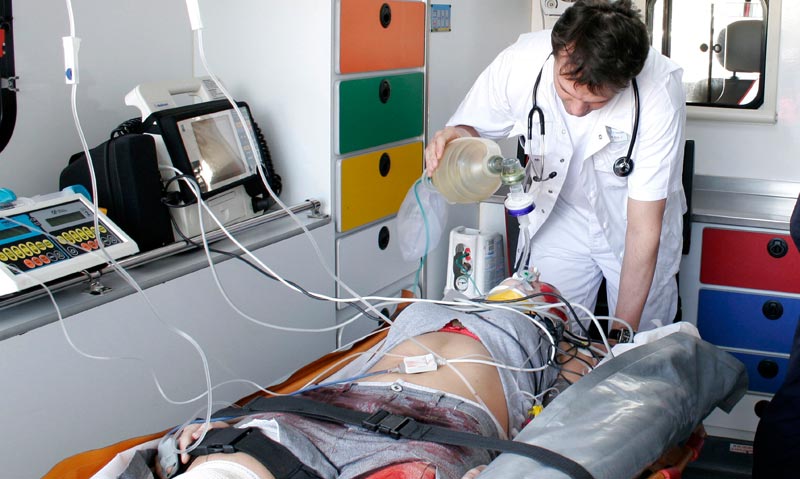MOMENTUM is building for around-the-clock consultant-led care at major trauma centres, with evidence suggesting it could reduce deaths among critically ill patients.
Researchers at The Alfred Hospital in Melbourne found high-risk patients with acute traumatic coagulopathy (ATC) had significantly higher odds of dying if they presented after hours compared with in-hours (43% versus 33%).
The single-site retrospective study published in the MJA included 398 patients presenting between 2006 and the end of 2011 with ATC, with 152 dying in hospital. (1)
The researchers wrote that their findings suggested that difference in outcomes for patients who presented after-hours was not associated with particular routine processes or timely access to interventions.
“This generates the hypothesis that such differences could be associated with access to effective coordination by senior decisionmakers during complex resuscitations”, they wrote.
“If a demonstrated absolute difference of 10% improvement in outcomes could be achieved, this would equate to at least three lives saved per year, per trauma centre [in ATC patients alone].”
The researchers said that in a subset of patients with ATC who were candidates for haemostatic resuscitation and damage control surgery, timely and well coordinated intervention was vital.
They chose to examine ATC patients (defined as INR >1.5 on presentation to hospital), as the effect of any difference in trauma care was likely to be emphasised in this high-risk population. Previous studies had failed to show a significance association between after-hours admission and mortality after adjusting for injury severity.
The researchers wrote that, nevertheless, most major trauma centres in the US had developed a uniform 24-hour model of staffing, which was “perceived as the ideal model of care”.
Professor Zsolt Balogh, president of the Australian Orthopaedic Trauma Society, backed the call for trauma centres to be fully staffed, but said he didn’t think the study was conclusive.
“My personal experience is that we have substandard after-hours and weekend care and the way to improve it is through consultant-led care and better access to resources such as operating theatres”, he told MJA InSight.
However, Professor Balogh said the researchers might not have adequately controlled for the case mix and severity of patients, noting a higher proportion of patients with severe shock, poorer Glasgow Coma Scale scores and greater base deficits in the after-hours group.
“Thankfully, we have very few preventable deaths in trauma hospitals today anyway”, he said, which was largely due to advances in trauma systems, but also reflected Australia’s small number of penetrating injuries such as shootings, where time to surgery was crucial.
Dr Paul Barach, an anaesthetist and intensive care expert, and former project leader of the now defunded NSW Trauma Collaborative, said the latest study, together with international research, should “behove policymakers to consider the need to raise the minimum required number of high-level trauma unique specialists on duty at any one time”.
“Other high-risk industries such as aviation and nuclear power strive to have consistent safety performance all days a week, 24 hours a day”, said Dr Barach, who now works in Europe. “Health care unfortunately doesn’t have the same reliability, which is why patients are still being harmed.”
Dr Barach told MJA InSight the results of the MJA study could be confounded by unmeasured human factors such as the time of year and day of week the injured patients presented to hospital, and whether these were times when more junior doctors and nurses were on duty.
He cited a 2013 UK study, in which the risk of death was 82% higher if medical procedures were carried out on a weekend compared with on a Monday. (2)
A 2009 study at The Alfred Hospital had found a 40% increase in “undesirable events” during anaesthetic procedures in the month of February when anaesthetic registrar training began, compared with the rest of the year. (3)
“The question is whether patients deserve to have consistent and reliable acute surgical care 24 hours a day every day of the year, or should it depend on when you present with your injury?” Dr Barach said.
1. MJA 2014; 201: 588-591
2. BMJ 2013; Online 28 May
3. BMJ 2009; Online 14 October
(Photo: Lemoine / Science Photo Library)

 more_vert
more_vert